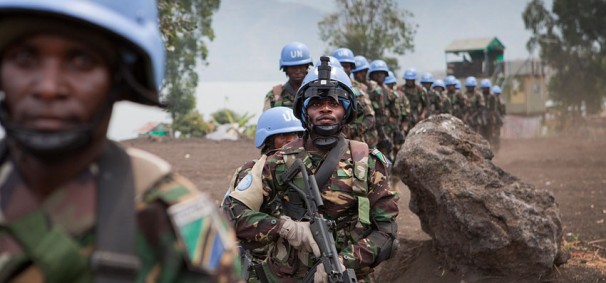Please see Nina Wilén’s SSR 2.0 Brief for a more detailed treatment of this topic.
Articles and reports about security sector reform (SSR) and disarmament, demobilization and reintegration (DDR) in the Democratic Republic of the Congo (DRC) are nowadays often ignored or shrugged off by analysts and researchers alike for several reasons. Firstly, because SSR-DDR in the DRC is as Boshoff once wrote, a “never-ending” story. We have all heard the story several times before, yet there never seems to be a neat ending. Secondly, the sheer amount of time and energy that has been invested in the SSR-DDR processes from both national and international actors at various stages during the last decade makes it depressing to read yet another report on the lack of political will, coordination among donors and concrete progress. Finally, the lack of surprises or new findings in these reports is another reason why a lot of researchers avoid the topic of SSR-DDR in the Congo. Most things seem to have been said or done before: the context rarely changes dramatically, and the key actors remain the same, which makes for few new insights and revelations.
Yet in 2012 and 2013, things changed quite radically. The M23 emerged on the scene in 2012; a force composed of deserters from the Congolese army and unsatisfied former CNDP members. However, the structure of the force remained quite familiar. The ‘new’ rebel group represented yet another effort by the Congo’s unhappy neighbours to stir up trouble. It was a continuation of the decade-long regional intervention by Rwanda and Uganda, who have provided support to the rebel group. In the meantime, fighting between M23 and the Congolese army (FARDC) meant new internal displacements of hundreds of thousands civilians and additional victims in the two 20-year long conflict in the East of the Congo.
The M23’s victory over the FARDC in November 2012 in Goma in front of a largely passive MONUSCO became a humiliating experience for both the Congolese government and the UN. Yet, for the M23, the victory did not give the expected benefits. Instead, regional discussions led up to a new peace agreement, the Peace Security and Cooperation Framework, between 11 regional powers, with the M23 noticeably absent. Indeed, the new framework brought a new military actor to help fight the rebel group, the UN’s Force Intervention Brigade (FIB). In addition, a political process to address the root causes of the conflict seemed to finally be underway in the region, at the same time as donors aligned to put pressure on Rwanda and provide funds to implement the process. It appeared as if a window of opportunity finally had opened up for some serious change in the Congo. The window remained open long enough for a partly restructured and reformed FARDC to seize the opportunity to finally get their first military victory in decades with support from FIB against M23 in November 2013.
Relatively rapidly after this victory, the Congolese government put together a third DDR program to handle, amongst others, the rebels from the M23. In an attempt to avoid previous mistakes related to generous integration policies, the government also approved a new amnesty law and decided to relocate the former rebels far from their own regions. Yet, despite initial efforts to make this DDR process distinct from previous iterations, in 2014 it seemed as if things largely fell back into the traditional pattern of one step forward and two steps back. The voluntary DDR process was delayed for a number of reasons, amongst others the fact that the new relocation policy seemed more like deportation for an unknown period than anything else, making the voluntary part of the process a challenge. Budget, infrastructure and logistics problems also contributed to delays in the DDR process.
In the meantime, the continued existence of the Rwandan Hutu extremists’ group FDLR in the East has remained as a symbolic open wound which evokes doubts about Kabila’s commitment to eliminate them, at the same time as it gives Rwanda reasons to support a new rebellion. In addition, the UN and FARDC’s collaboration to fight rebel groups is questioned with regard to both its efficiency and its long-term objective as recent massacres of civilians in the Beni territory—supposedly by the Ugandan rebel group ADF-NALU (Alliances of Democratic Forces)—took place in close proximity to both UN troops and FARDC camps. These findings suggest thus that the context in the Congo is quite rapidly returning to the status quo of just two years ago, with former rebels waiting around in the region; new attacks against civilians from another rebel group; and the UN and FARDC facing collaboration difficulties and questions with regards to their efficiency. Yet the upcoming elections in 2015 and the dynamics and attention related to events on the ground might help push the window of opportunity open once again if key actors align to make it happen. If not, there is a risk that new reports on SSR-DDR in the Congo will merely say what we already know: there is little to no progress.
______________________
Dr. Nina Wilén is a Senior Fellow with the Centre for Security Governance (CSG).






 Visit the Centre for
Visit the Centre for